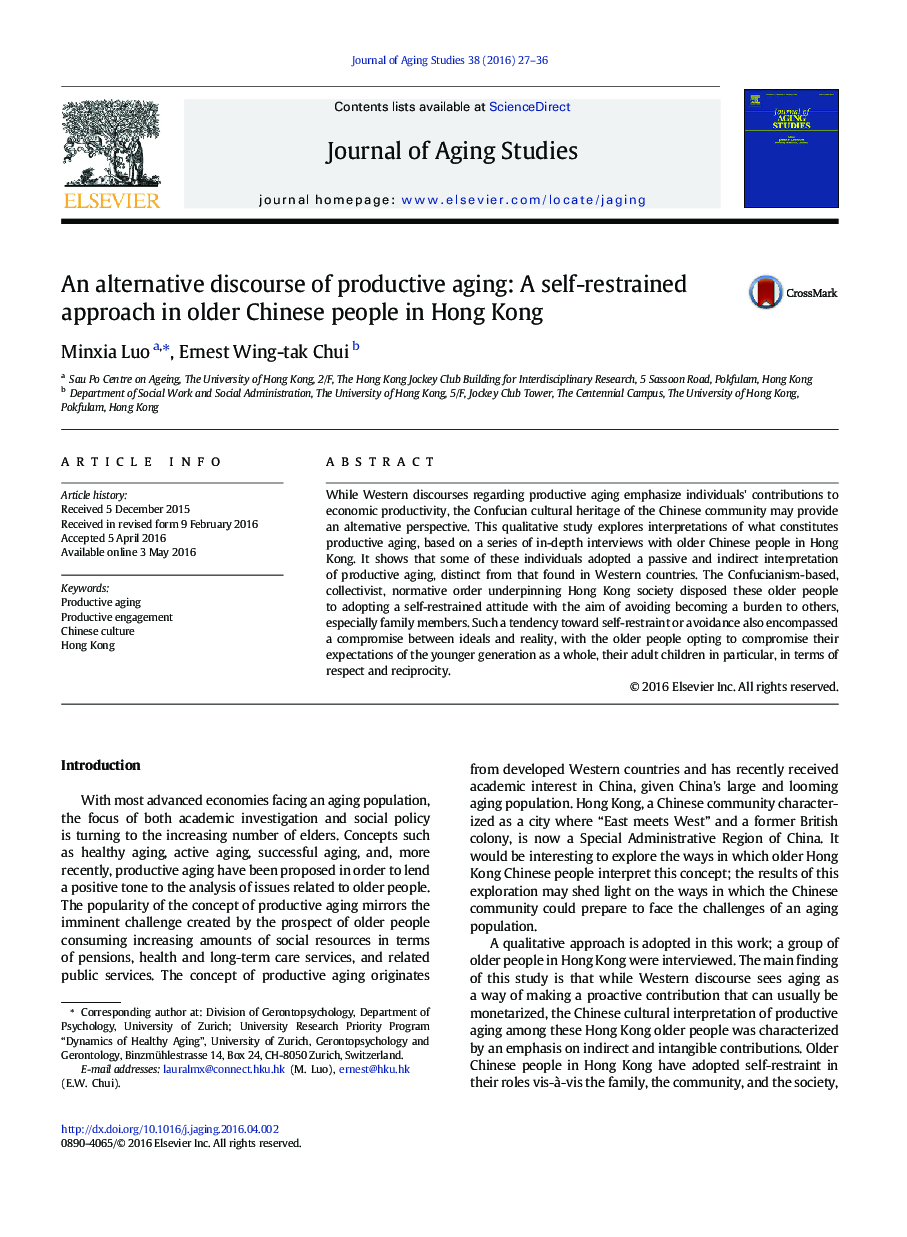| کد مقاله | کد نشریه | سال انتشار | مقاله انگلیسی | نسخه تمام متن |
|---|---|---|---|---|
| 1081752 | 1486763 | 2016 | 10 صفحه PDF | دانلود رایگان |
• Alternative discourse on productive aging exists in Chinese culture.
• Older Hong Kong Chinese interpret productive aging with a passive approach—avoid being burden.
• The tendency toward self-restraint is rooted in the Chinese normative beliefs and the socioeconomic background of Hong Kong.
• It encompassed a compromise between expecting allegiance and pragmatic constraint.
While Western discourses regarding productive aging emphasize individuals' contributions to economic productivity, the Confucian cultural heritage of the Chinese community may provide an alternative perspective. This qualitative study explores interpretations of what constitutes productive aging, based on a series of in-depth interviews with older Chinese people in Hong Kong. It shows that some of these individuals adopted a passive and indirect interpretation of productive aging, distinct from that found in Western countries. The Confucianism-based, collectivist, normative order underpinning Hong Kong society disposed these older people to adopting a self-restrained attitude with the aim of avoiding becoming a burden to others, especially family members. Such a tendency toward self-restraint or avoidance also encompassed a compromise between ideals and reality, with the older people opting to compromise their expectations of the younger generation as a whole, their adult children in particular, in terms of respect and reciprocity.
Journal: Journal of Aging Studies - Volume 38, August 2016, Pages 27–36
